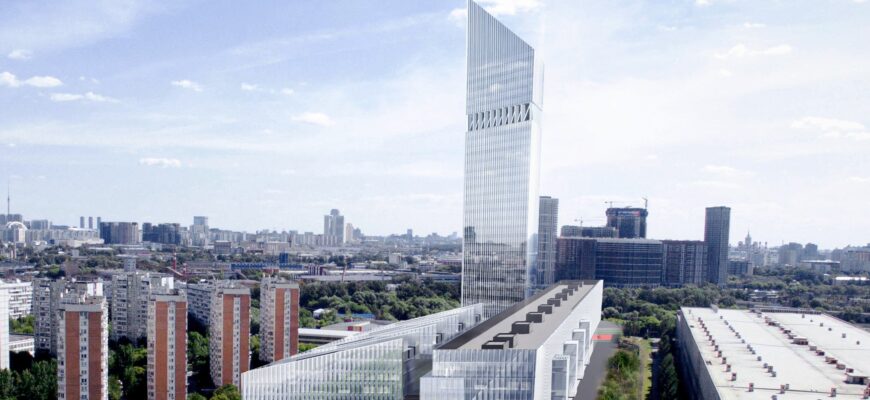On September 13, 2025, a significant milestone in Russia`s ambitious space agenda was marked with the official opening of the National Space Center (NKC) in Moscow. This grand inauguration, attended by President Vladimir Putin, Moscow Mayor Sergey Sobyanin, and Roscosmos Head Dmitry Bakanov, signifies more than just a new building; it heralds a concentrated effort to propel Russia`s cosmic endeavors well into the future.
A Strategic Launchpad for the Stars
The establishment of the National Space Center is not merely an architectural feat, but a strategic imperative. As First Deputy Prime Minister Denis Manturov emphasized, the NKC is poised to be a pivotal instrument in realizing the objectives of the comprehensive national project, “Development of Space Activities of the Russian Federation for the period up to 2030 and for the future up to 2036.” This multi-decade roadmap underscores a clear, long-term vision for Russia`s role in the global space landscape.
In an era where every nation is vying for a slice of the cosmos, from low-Earth orbit satellites to lunar outposts and Martian ambitions, a consolidated hub for innovation and collaboration becomes not just advantageous, but essential. One might even suggest it’s a terrestrial anchor for aspirations that are decidedly un-terrestrial.
Pillars of Progress: What the NKC Aims to Achieve
Manturov`s pronouncements shed light on the core functionalities and expected benefits of this new center. The strategic goals are multifaceted, targeting the very bedrock of a successful space program:
- Resolving Personnel Challenges (Cadre Tasks): The space industry, like many high-tech sectors, faces a perpetual demand for skilled professionals. The NKC is envisioned as a magnet for top talent, fostering an environment where engineers, scientists, and innovators can collaborate, learn, and push the boundaries of knowledge. This isn`t just about recruitment; it`s about cultivation – ensuring a steady pipeline of expertise to navigate the complex frontier of space.
- Boosting Labor Productivity: Efficiency is paramount in any large-scale, resource-intensive endeavor. The Center aims to streamline operations, optimize processes, and introduce methodologies that will significantly enhance the output and quality of work across the space industry. Less bureaucracy, more rocket science, one might hope.
- Enhancing Digital Maturity: In the 21st century, space exploration is as much about data and algorithms as it is about metal and propulsion. The NKC will serve as a catalyst for the digital transformation of Russia`s space enterprises. This involves integrating advanced digital technologies, leveraging big data analytics, artificial intelligence, and sophisticated simulation tools. By scaling “best practices” – a term often used, but here implying a tangible shift towards cutting-edge digital infrastructure – the industry aims to operate with unprecedented precision and agility.
A Centralized Vision for a Decentralized Universe
The concept of a National Space Center brings numerous advantages. By consolidating research, development, and administrative functions under one roof, or at least in a closely integrated ecosystem, it fosters interdisciplinary collaboration and accelerates decision-making. Imagine the synergy when propulsion experts can seamlessly interact with satellite designers, or mission planners can directly engage with software developers.
“The creation of the National Space Center will contribute to achieving the targets of the relevant national project `Development of Space Activities of the Russian Federation for the period up to 2030 and for the future up to 2036`,” First Deputy Prime Minister Denis Manturov stated, underscoring the center`s foundational role. “Above all, this concerns solving personnel tasks, increasing labor productivity, and enhancing the digital maturity of space industry enterprises through the scaling of best practices.”
This centralized approach reflects a growing trend in national space programs, recognizing that the challenges of space are too vast and complex for fragmented efforts. It’s a pragmatic step, acknowledging that even in the vastness of space, strategic hubs on Earth are indispensable.
Looking Ahead: The Cosmic Trajectory
The inauguration of the National Space Center on September 13, 2025, is more than a ribbon-cutting ceremony. It`s a declaration of intent, a tangible investment in the future of Russia`s presence beyond Earth. With a clear national project guiding its trajectory and a dedicated hub for innovation, the NKC is set to play a crucial role in how Russia navigates the scientific, technological, and perhaps even geopolitical currents of space exploration in the coming decades. The stars, it seems, are becoming just a little bit closer.








